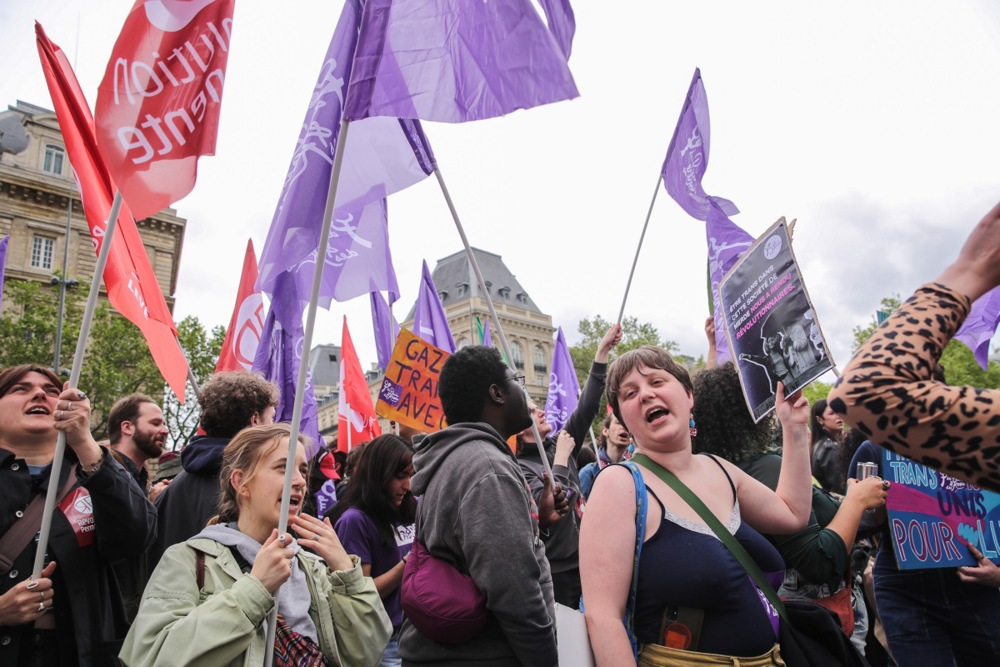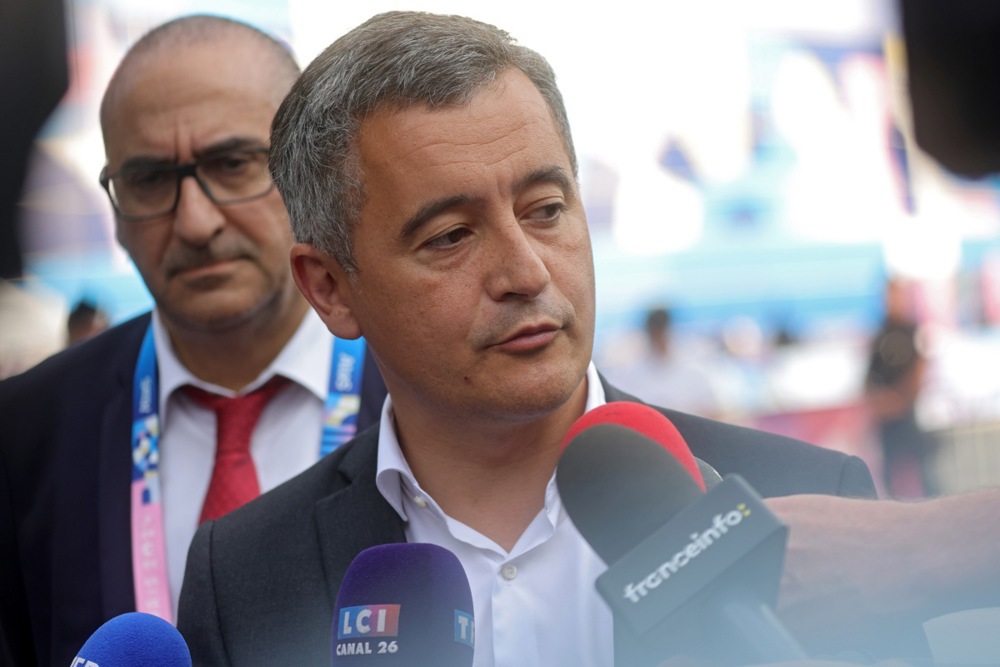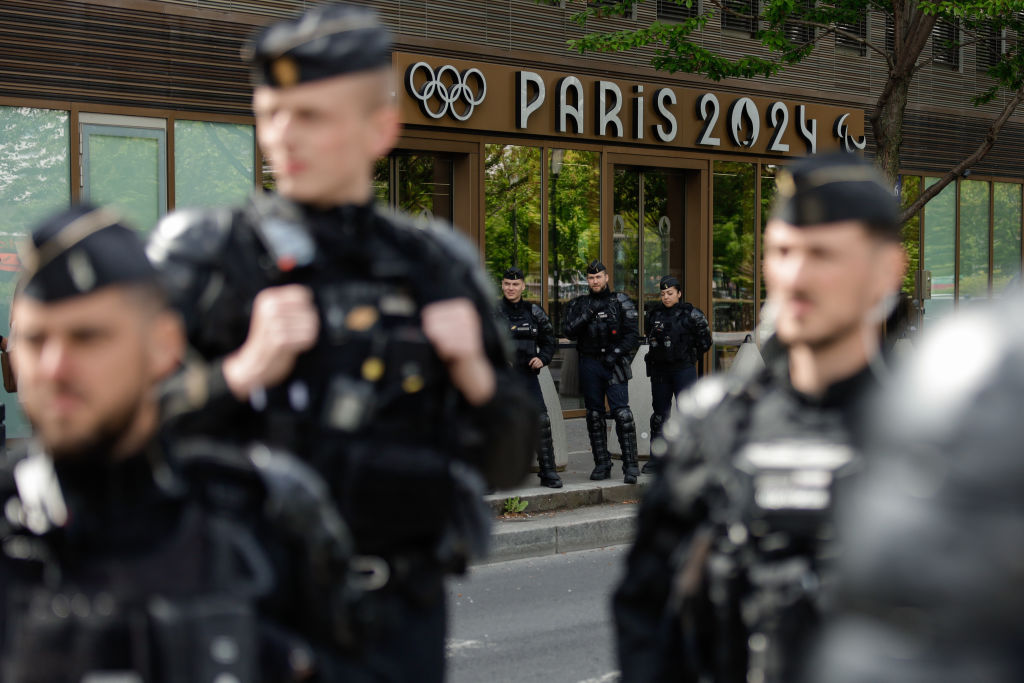Italy’s Prime Minister Giorgia Meloni has come out in support of the Italian boxer who lost an Olympic bout to Imane Khelif, the Algerian fighter who is currently at the centre of a sex-test controversy.
Khelif, who was born and raised a biological woman, was described by the International Boxing Association (IBA) as having “failed to meet eligibility rules” for women’s boxing in 2023. One official from the body told Russian news agency TASS that the decision was made because the fighter has “XY chromosomes”.
Despite the ruling, Khelif was allowed to compete in 2024 by the International Olympic Committee (IOC), with the fight against Italian Angela Carini drawing public concern.
Angela Carini just pulled out of her fight against Imane Khelif – a man.
Seconds into the fight yet she knew the danger she was in.
Her Olympic dreams gone for the sake of "inclusion".
Shame on you @iocmedia. You're a disgrace. pic.twitter.com/5rL1wu2g2V
— Brandubh (@brandubh4) August 1, 2024
Carini withdrew from the bout after 46 seconds, telling Italian wire agency ANSA that one punch from Khelif was all it took for her to tell she was outgunned.
“I didn’t give up, but one punch hurt too much and so I said ‘enough’,” she said.
Meloni has now come out in support of Carini, suggesting that the fighter would eventually have her day in a “fair” competition.
“I know you won’t give up, Angela, and I know that one day you will earn with effort and sweat what you deserve. In a competition that is finally fair,” she wrote.
So che non mollerai, Angela, e so che un giorno guadagnerai con sforzo e sudore quello che meriti. In una competizione finalmente equa. pic.twitter.com/bJ2GfAUTzq
— Giorgia Meloni (@GiorgiaMeloni) August 1, 2024
Others have accused the IOC of endangering women by letting Khelif compete, describing the Algerian as a “man”.
Some netizens have falsely claimed that the fighter is “transgender” — a technically incorrect designation as Khelif has never identified as anything but a women, nor been identified by her society as being anything but a woman.
By contrast, “transgender” is a term developed in sociology for an individual whose medically-determined sex at birth does not correspond to their so-called “gender identity”.
The IBA, though, has insisted that Khelif has intersex characteristics that render her illegible for women’s boxing. These allegedly include a sizeable number of her cells having XY chromosomes.
While rare, some intersex genetic conditions such as Morris syndrome and Swyer syndrome involve individuals with XY chromosomes developing as biological women. Those with both conditions do not have male genitalia, instead developing mostly functional female reproductive organs. Some with the condition can even give birth.
Such individuals often maintain a number of secondary sex characteristics that are more typical of “normal” males, including male features and increased muscle mass.
It is unknown whether Khelif has any such chromosomal syndromes, or any other conditions that could give her an advantage in women’s boxing.
The IOC has rejected the outrage directed at Khelif and another boxer — Taiwan/Chinese Taipei’s Lin Yu-ting — accusing the IBA’s decision to disqualify both fighters in 2023 of being “arbitrary”.
“The current aggression against these two athletes is based entirely on this arbitrary decision, which was taken without any proper procedure – especially considering that these athletes had been competing in top-level competition for many years,” the IOC said on August 1.
It went on to question the legitimacy of the IBA as a whole, urging: “National Boxing Federations to reach a consensus around a new International Federation in order for boxing to be included on the sports programme of the Olympic Games LA28.”
Pundits in favour of Khelif continuing to fight in the competition have also pointed out that she took part without incident in the Tokyo Olympics in 2021, losing to Ireland’s Katie Harrington in the quarter-finals, with the Irish fighter going on to win gold.
Here’s the first round of the Kellie Harrington vs Imane Khelif fight from the Tokyo 2020 Olympics, which Harrington won. No false allegations were made then by disingenuous transphobic bigots.
Full fight starts at 1:47:00 https://t.co/Ae6TSk2W8i https://t.co/9mKqqfk6jY pic.twitter.com/8S1pSwCFdc
— Mauricio Schneider (@MauRSchneider) August 1, 2024
Officials from the IBA have stuck to their guns, insisting the 2023 disqualifications were above board, and that neither athlete ended up appealing their decision.
“IBA remains committed in ensuring competitive fairness in all of our events, we absolutely condemn the inconsistencies in eligibility to compete in the boxing competition held in the Paris Olympic Games 2024,” it said on August 1.
“To reiterate, both Imane Khelif and Lin Yu-ting post-testing, did not meet the required eligibility criteria to compete within the female category of our respective events.
“We absolutely do not understand why any organisation would put a boxer at risk with what could bring a potential serious injury within the ‘Field of Play’ (FOP). The main role of the referee in the ring is to manage the boxer’s safety at all times.
“How is this reasonably practicable when a boxer fails to meet the eligibility criteria to compete?” the organisation added.
As of writing, Khelif remained in place to compete in the Welterweight quarter-finals on August 3.
Her next opponent is to be Hungary’s Luca Hámori, prompting some outrage from Conservative outlets in the country who believe their sportswoman to be heading into an unfair fight.
Hámori has responded to the controversy with bravado, insisting that she will take part in the bout regardless of Khelif’s sex.
“I’m not scared,” she reportedly told the press in Paris.
“If she or he is a man, it will be a bigger victory for me if I win.”
The organisers of the Paris Olympics have apologised to those who were offended by the opening performance of the Games which imitated Leonardo Da Vinci's painting, 'The Last Supper'. #Paris2024 #Olympics #OpeningCeremony pic.twitter.com/hor69FV35r
— Brussels Signal (@brusselssignal) July 30, 2024





